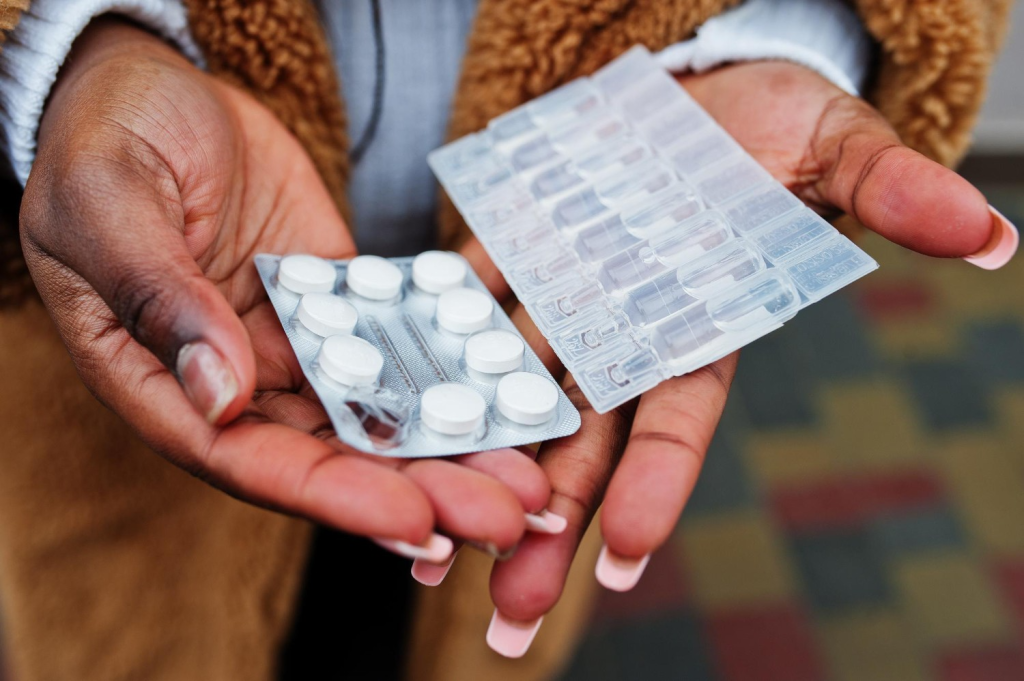Breastmilk is not just food – it contains the perfect balance of nutrients and antibodies tailored to a baby’s growth and protection. However, any medication a breastfeeding mother takes – whether herbal, prescription or over-the-counter medicines – should be carefully checked with a healthcare professional to ensure they cannot pass on any unintended effects to her baby.
“Medication taken by a breastfeeding mother can affect her baby, though the degree of risk varies depending on several factors,” says pharmacist Musarrat Parker of Medipost Pharmacy, South Africa’s first national courier pharmacy.
“Breastmilk is rich in antibodies like Immunoglobulin A (IgA), which protects babies against infections of the nose, throat, and digestive system. In addition to infection protection, breastfeeding has innumerable benefits, including reducing the risk of asthma, obesity, type 1 diabetes, ear infections and stomach bugs. Studies also suggest a cognitive benefit, in that breastfed children often perform better on intelligence tests later in life,” she says.
“It is essential for breastfeeding mothers to ensure any supplements, herbal remedies or medications are safe for the baby as most oral or injected medications pass into breastmilk. Although this is usually in very small amounts, the baby’s age, weight, and health status influence how their bodies can metabolise these substances.”
Parker explains that premature or medically fragile infants are more sensitive to drug exposure; however, certain medications could pose health risks for any breastfed babies.
“If the mother is taking certain medications, especially opioids, antihistamines, or certain antidepressants that are not recommended while breastfeeding, the child may be sedated or could display irritability. Other medicines may alter the taste of breastmilk, making it less palatable for the baby, or reduce the mother’s milk supply,” she says.
In rare cases, developmental concerns could be possible with long-term exposure to high-risk drugs, and certain medications may lead to organ stress, particularly affecting liver or kidney function in newborns.
“Another medication safety consideration when breastfeeding is that the baby could experience an allergic reaction if they’re sensitive to a medication or ingredient passed from the mother through her breastmilk. This can result in a medical emergency,” Parker cautions.
Three golden rules
“Breastmilk remains the best option for feeding babies, and there are three golden rules we encourage breastfeeding women to follow to ensure the safety of their babies,” she says.
- Always inform your healthcare provider that you’re breastfeeding before taking any medication, whether it is prescription, over-the-counter, or herbal.
- Avoid self-medicating, especially with unfamiliar drugs or supplements. Even natural products can be potentially harmful.
- Use trusted resources, such as www.e-lactancia.org, to check whether foods or medications are safely compatible with breastfeeding.
“There are also safer medication practices that can be helpful during breastfeeding, in consultation with your obstetrician. For example, timing your doses to take medicine immediately after breastfeeding, which can help to reduce infant exposure at the next feed,” Parker adds.
“Even with safe medications, stick to the recommended dose, as exceeding this could increase the risk for your baby. Discuss the options for short-acting drugs with your pharmacist, as these medications clear from your system faster and often do not transfer to breastmilk, which makes them a safer option for protecting your baby.”
In addition to the delivery of medication, supplements and other health and beauty essentials, Medipost Pharmacy offers pharmacy advice telephonically in all official South African languages to support patients with clinical queries on medication, such as whether a particular medication is safe when breastfeeding.
“If you are taking any medication, it is always vital to monitor your baby for any changes in feeding, sleep, or behaviours such as excessive drowsiness or irritability, which could indicate a potential reaction that should be investigated with your child’s paediatrician,” she advises.
What the body needs while breastfeeding
“The nutrient requirements of breastfeeding mothers increase, and obstetricians will often recommend that the following be supplemented according to the mother and baby’s individual needs,” Parker says.
- Vitamin D: A daily supplement of 10 micrograms for mothers.
- Vitamin B12: This is especially important for vegetarian or vegan mothers, as it’s primarily found in animal products.
- Folic acid: Supports maternal health and helps to replenish the stores used up by your body during pregnancy.
- Iron: Helps combat fatigue and supports red blood cell production, which is especially vital if blood loss occurred during delivery.
- Calcium and magnesium: Important for bone health and muscle function, particularly recommended for mothers whose dairy intake is low.
- Omega-3 (DHA): Supports brain development in babies and mood regulation in mothers.
“Many breastfeeding mothers continue to take prenatal vitamins, such as those available from shop.medipost.co.za, after their baby is born, as these contain a broad spectrum of nutrients,” she adds.
“Breastfeeding is a profound commitment, both physically and emotionally. While it offers extraordinary benefits, the reality of breastfeeding on demand can be incredibly tough on mothers, especially in the early months when babies feed frequently, day and night,” Parker says.
“Where possible, rotate nighttime responsibilities with a partner or sleep coach using expressed breastmilk. It can also be practically helpful to set up a calming feeding space with back support, entertainment, and access to hydration, using nursing pillows and proper positioning to reduce strain,” she suggests.
“Cherish the time of breastfeeding; the emotional and physical benefits it has for both mother and baby are invaluable. Your trusted national courier pharmacy delivers for your family to any address in South Africa.”







